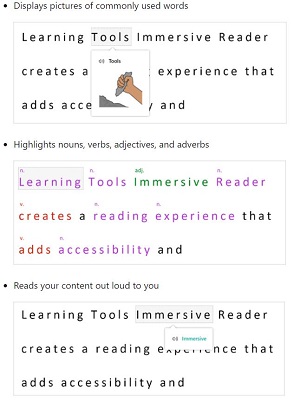News
Amid COVID-19 Remote-Learning Surge, Microsoft Touts Azure Cognitive Services
With the U.S. already adjusting to the new remote-work reality caused by COVID-19, remote learning is taking center stage as the school season starts, and Microsoft is touting its Azure Cognitive Services to help.
Azure Cognitive Services is a family of artificial intelligence (AI) services and cognitive APIs that helps developers -- even those with no machine learning expertise -- embed the ability to see, hear, speak, search, understand, and accelerate decision-making into their apps, Microsoft says.
One member of that family is Immersive Reader -- which helps readers read and comprehend text -- and that's what the company is publicizing now to "empower" remote learning as students head back to school, if not actual physical classrooms.
Immersive Reader "lets you embed text reading and comprehension capabilities into applications," Microsoft says. "Help users of any age and reading ability with features like reading aloud, translating languages, and focusing attention through highlighting and other design elements."
 [Click on image for larger view.] Illustrating Some Immersive Reader Functionality (source: Microsoft).
[Click on image for larger view.] Illustrating Some Immersive Reader Functionality (source: Microsoft).
The company claims its Azure cloud is the only such provider to offer this reading technology.
In a recent blog post, Microsoft announced the general availability of the service, which it said has been improved with:
- Immersive Reader SDK 1.1: Updates allow a page to be read aloud automatically, with pre-translating content, and more. More information is available here.
- New Neural Text-to-Speech (TTS) languages: 15 new Neural Text to Speech voices, enabling students to have content read aloud in more languages. More information is available here.
- New Translator languages: Five new languages will be available -- Odia, Kurdish (Northern), Kurdish (Central), Pashto, and Dari. More information is available here.
The recent post for back-to-school season isn't the company's first such effort, as way back in March it was publicizing "Helping teachers and students make the switch to remote learning."
Microsoft last month also touted more Azure Cognitive Services and other services, including:
- Text to Speech, to drive student engagement and allowing users to convert text to lifelike audio in order to facilitate new ways for students to interact with content.
- Audio Content Creation tool to "bring audiobooks to life and finetune audio characteristics like voice style, rate, pitch, and pronunciation to fit their scenarios -- no code required."
- Transcribe in Word, which uses Speech to Text, said to boost note-taking and other learning activities by automatically transcribing conversations. "Now with speaker diarization, you can get a transcript that identifies who said what, when."
Microsoft listed more resources for further information:
"Immersive Reader has become a critical resource for distance learning, with more than 23 million people every month using the tool to improve their reading and writing comprehension," Microsoft said. "Between February and May 2020, when many schools moved to a distance learning model, we saw a 560 percent increase in Immersive Reader usage. As the education community embarks on a new school year in the Fall, we expect to see continued momentum for Immersive Reader as a tool for educators, parents, and students."
About the Author
David Ramel is an editor and writer at Converge 360.